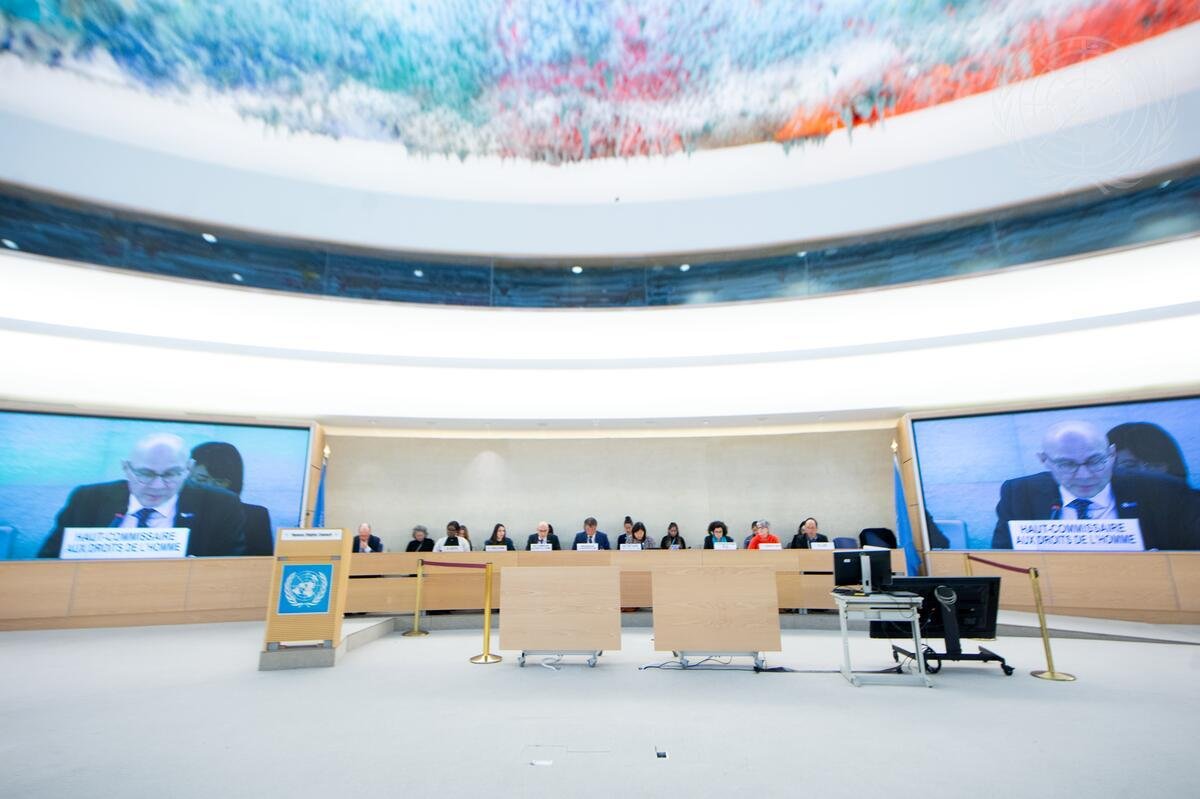GENEVA, Switzerland. April 4th, 2023. The United Nations Human Rights Council has passed a resolution condemning the use of “unilateral coercive measures” i.e. economic sanctions, as an impediment and detriment to the enjoyment of human rights, especially in least-developed and developing countries.
The resolution was adopted with 33 nations voting for and 13 against, all of whom were European countries and the US. In fact, one could say the vote took place along “party lines” with the West voting no, and the Rest voting yes.
Former Ecuadorian Foreign Minister Guillame Long tweeted, “Global North vs. Global South” in response to the result of the vote.
The text of the resolution explicitly calls on all States to “stop adopting, maintaining, implementing or complying with unilateral coercive measures not in accordance with international law, international humanitarian law, [and] the Charter of the United Nations”.
The US has sanctions on dozens of countries and recently threatened any African nation that violates the sanctions on Russia with being sanctioned themselves. The US refused to lift sanctions on Syria after the recent earthquake, explaining their policy is to “prevent Syrian reconstruction”.
US regimes past and present have sanctioned countries enduring famine, fuel and food shortages, or disease epidemics, including Iraq, Afghanistan, Yemen, Somalia, North Korea, Cuba, Venezuela, and the aforementioned Syria.
It’s unsurprising then that the US voted against it, but Romina, Finland, France, Montenegro, Luxemburg, Czechia, Belgium, Germany, Georgia, and the UK all voted against the resolution as well.
“On the one hand, these countries claim to be defenders and promoters of human rights at a global level and, in contrast, they support the imposition of these illegal measures against the peoples of the world,” Ana Gabriela Salazar, research coordinator at Venezuelan human rights organization SURES, told Venezuela Analysis.
#HRC52 | Draft resolution A/HRC/52/L.18 on the negative impact of unilateral coercive measures on the enjoyment of human rights was ADOPTED. pic.twitter.com/qTuCWFbwG6
— UN Human Rights Council ?#HRC52 (@UN_HRC) April 3, 2023
Et tu, Venezuela?
Such unilateral coercive measures employed first by Donald Trump then by Joe Biden have devastated the economy in Venezuela, pressured as it is being a centrally-planned petroleum-dependent economy.
Losses from sanctions on the national energy company PDVSA could be as high as $30 billion a year, after Trump tried to overthrow the government of Nicolas Maduro in the 2019 coup d’etat utilizing the US-backed opposition member, Juan Guaido.
It didn’t pan out, and eventually in 2022 Guaido was removed from his position and sent into exile. The current party in opposition to the presidency is now asking Biden to lift the sanctions on the Maduro regime.
Fernando Blasi, the new envoy for Venezuela’s US-backed opposition, is calling on the Biden administration to ease crippling sanctions on Venezuela, saying not doing so could turn the country into another Cuba.
Blasi said that the majority population is suffering under the sanctions, but that their removal could lead to policy concessions ahead of the 2024 election.
“We have to begin now with a coherent plan whereby we give something and the government reciprocates,” he said.
“If we continue down this path, Venezuela is destined to be another Cuba. It will become an issue for politicians in Florida to win elections… That would be an extremely sad destiny for a country.” WaL
PICTURED: The UN Human Rights Council convenes for its 52nd session. PC: UN.
If you think the stories you’ve just read were worth a few dollars, consider donating here to our modest $500-a-year administration costs.



